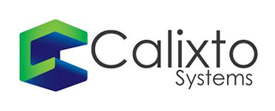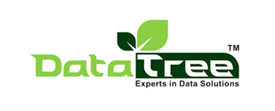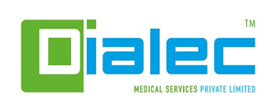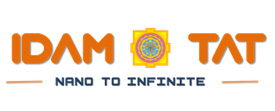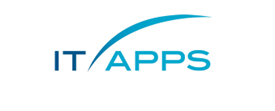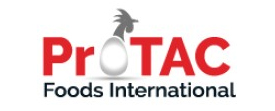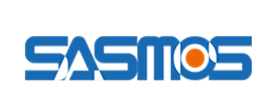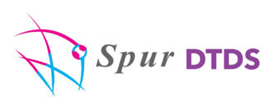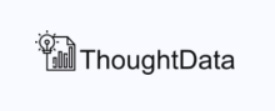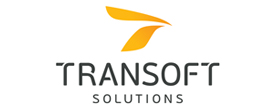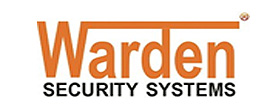Import Export Code (IEC) Registration Services
Get your Import Export Code (IEC) to start international trade. We assist you with the application process, so that your business is ready for cross-border transactions under DGFT guidelines.

The Importer Exporter Code (IEC) is an important identification code issued by the Directorate General of Foreign Trade (DGFT) under the Ministry of Commerce and Industry, Government of India. As per the Foreign Trade (Development and Regulation) Act, 1992, and the Foreign Trade Policy of India, it is mandatory for businesses engaged in the import or export of goods and services to obtain an IEC if you are engaged in cross-border trade activities. Without IEC registration, these transactions are non-compliant and lead to hefty penalties and restrictions.
The IEC is a ten-digit unique identifier issued to businesses and individuals seeking to engage in international trade. And it is essential at the time of customs clearance, for remittances made to foreign entities, and to avail of export incentives under various government schemes.
According to the World Trade Organisation (WTO), India's merchandise exports grew by 5.4% in 2022, with small and medium enterprises contributing over 40% of this growth. Obtaining an IEC is, therefore, an important step for your business if you are looking to enter into global opportunities.
Whether you are exporting agricultural products or importing advanced machinery, IEC registration helps you access the international marketplace, eliminating trade barriers and providing a framework for compliant operations.
Why Choose Benchmark for Your IEC Registration
When it comes to securing your Import Export Code (IEC) efficiently and reliably, we stand out as a trusted partner. With years of expertise in trade compliance and regulatory procedures, we help you in every step of your IEC registration.
Key reasons to partner with Benchmark:
- Expert assistance in understanding the DGFT application process.
- Swift processing and timely issuance of IEC.
- Affordable service packages tailored to your business needs.
- Dedicated support for document preparation and verification.
- Access to post-registration advisory services.
- Transparent pricing with no hidden charges.
- Industry-specific solutions for exporters, importers, and service providers.
- Proven track record with a high success rate in IEC approvals.
- Continuous updates on regulatory changes and trade policies.
Our Services
At Benchmark, we offer a range of specialised services to cater to all aspects of IEC registration and compliance. Our expert-driven solutions are made to help your business understand the intricacies of international trade regulations effectively.
- Guidance on interpretation and application of the Foreign Trade (Development and Regulation) Act, 1992.
- Assistance in the classification of goods and services under applicable trade codes for smooth IEC application.
- Preparation and filing of IEC application forms through the DGFT portal.
- Amendments and updates to existing IEC records, including changes in business structure, address, or ownership.
- Issuance of duplicate IEC certificates in case of loss or damage.
- Advisory on integrating IEC details with GSTIN and other regulatory databases.
Who Needs IEC Registration
Import Export Code (IEC) registration is a legal requirement for businesses and individuals engaging in international trade. Whether you are importing raw materials or exporting finished goods, an IEC is essential for smooth trade operations.
Below is a breakdown of entities that require IEC registration, along with their respective trade activities:
| Category | Requirements for IEC |
|---|---|
| Manufacturers | For exporting finished goods or importing raw materials and machinery. |
| Export-Oriented Units (EOUs) | For accessing foreign markets and availing export-related schemes and benefits. |
| Small and Medium Enterprises (SMEs) | For expanding operations internationally and increasing revenue streams. |
| E-Commerce Businesses | For facilitating cross-border online sales and transactions. |
| Service Providers | For exporting services to clients in foreign countries under various trade agreements. |
| Startups | For accessing global markets and leveraging international trade opportunities. |
| Multinational Corporations (MNCs) | For smooth import/export operations across multiple geographies. |
Documents Required for IEC Registration
To successfully apply for an Import Export Code (IEC), it is essential to prepare and submit accurate and complete documentation. Proper documentation helps in having a smooth registration process with the Directorate General of Foreign Trade (DGFT) and compliance with trade regulations.
- PAN card of the applicant (individual or business entity).
- Aadhar card or passport of the individual or authorised signatory.
- Proof of business address (electricity bill, rent agreement, or property documents).
- Certificate of incorporation or partnership deed for registered businesses.
- Cancelled cheque or bank certificate for verification of account details.
- Digital signature (Class 2 or Class 3) for online application submission.
- GST registration certificate.
- Board resolution or authorisation letter for companies, designating the authorised signatory.
- A valid email address and mobile number for communication purposes.
Step-by-Step Process for IEC Registration
Obtaining an Import Export Code (IEC) involves a systematic procedure outlined by the Directorate General of Foreign Trade (DGFT). Following these steps gives you an accurate and efficient registration, providing the way for legal and compliant international trade operations.
Step 1: Gather the Required Documents
Before starting the application, ensure you have all the essential documents, such as the PAN card, address proof, and bank details, in order. Verify the accuracy of the information to avoid discrepancies during the submission process. Having a digital signature (Class 2 or 3) ready is essential for completing the online application.
Step 2: Create a Login on the DGFT Portal
Visit the official DGFT website and create a login ID using your email address and mobile number. This login will provide access to the IEC application form and other trade-related services. Ensure the credentials are secure, as they will be required for future communications and updates.
Step 3: Fill Out the IEC Application Form (ANF-2A)
Log in to the DGFT portal and navigate to the IEC application section. Complete the form (ANF-2A) by providing accurate details about your business, contact information, and bank account. Double-check the entered details, as errors can lead to rejection or delays in the approval process.
Step 4: Upload Supporting Documents
Scan and upload the required documents, ensuring they are legible and meet the prescribed format. Attachments like the PAN card, address proof, and cancelled cheque should be clear and match the information provided in the form. Verify all uploads before proceeding to the payment stage.
Step 5: Pay the Application Fee
Submit the application fee through the online payment gateway on the DGFT portal. The fee is nominal and can be paid via net banking, credit card, or UPI. Once the payment is successful, a receipt will be generated for your records.
Step 6: Submit the Application
Review the entire application, including the attached documents and payment confirmation. Apply online and note the reference number for tracking purposes. Ensure no changes are required after submission, as amendments can delay the process.
Step 7: Await Approval and Issuance of IEC
The DGFT will review your application, verify the documents, and process the registration. If everything is in order, your IEC will be issued within 7-10 working days. You will receive the code via email, and it can also be downloaded from the DGFT portal.
Non-Compliance Issues with IEC Registration
Non-compliance with Import Export Code (IEC) regulations can lead to significant legal, financial, and operational challenges. You need to maintain compliance to avoid penalties and ensure uninterrupted trade activities. Below are the key non-compliance issues associated with IEC:
- Failure to obtain IEC before engaging in import or export activities.
- Non-renewal or failure to update IEC details after business restructuring or address changes.
- Incorrect classification of goods or services under the Harmonised System of Nomenclature (HSN).
- Lack of linkage between IEC and GSTIN for registered businesses.
- Misuse of IEC for unauthorised trade activities or third-party transactions.
- Non-maintenance of proper records for imports, exports, and related financial transactions.
- Non-reporting of export proceeds within the stipulated time frame.
- Failure to deactivate IEC for businesses that have ceased trade operations.
Conclusion
Import Export Code (IEC) registration is not just a regulatory requirement that you need to fulfill but a strategic step towards building a global presence for your business. Whether you are a manufacturer, exporter, importer, or service provider, obtaining an IEC unlocks opportunities for international trade while ensuring compliance with India's trade regulations. Non-compliance or delays in registration can result in missed opportunities and penalties, making it essential to partner with experts who understand the details of the process.
Get in Touch
Take the first step towards global trade success with Benchmark. Our team of experienced professionals simplifies the IEC registration process, ensuring accuracy and timely completion at every step.
FAQs
Is there a validity period for IEC?
IEC has lifetime validity and does not require renewal. However, it is essential to keep your details updated on the DGFT portal, especially after any changes in your business structure or contact information.
Are there any annual compliance requirements for IEC holders?
As an IEC holder, you are required to update your business details annually on the DGFT portal through the Annual Update process. This ensures your IEC remains active and in compliance with government regulations.
Is IEC required for service exporters, such as IT or consultancy providers?
Yes, service exporters also require IEC registration if they are receiving payments in foreign currency. It is essential for claiming benefits under government schemes like the Services Exports from India Scheme (SEIS) and for proper compliance with international trade norms.
Can IEC registration be cancelled if my business shuts down?
Yes, you can deactivate your IEC if your business ceases operations or no longer engages in import-export activities. The cancellation request can be submitted via the DGFT portal with relevant documents.
Is IEC required for availing export promotion schemes?
Yes, IEC is mandatory to avail benefits under export promotion schemes such as MEIS (Merchandise Exports from India Scheme) and SEIS (Service Exports from India Scheme). It serves as a prerequisite for these incentives.




